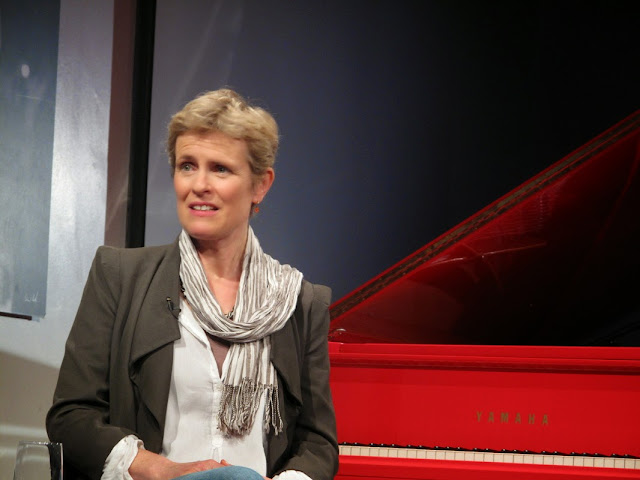In late October, Japan's DJ Muro, whom I remember from the Super Disco Friends mix he assembled with Dimitri from Paris in 2005, put together for Stussy Clothing a mostly terrific Curtis Mayfield mix that includes frequently sampled selections from the soundtracks Mayfield produced and performed for the '70s films Superfly and Short Eyes (a few of the Superfly songs can be heard during "AFOS Prime" and "Beat Box" on AFOS). It also includes a Mayfield tune I never heard before and have become taken with, "Make Me Believe in You" from 1974's Sweet Exorcist album (it starts at 1:01:19 in the mix). That song knocks.
I've listened to Muro's Mayfield holiday 2014 mix repeatedly after Stussy released it, and it's a delicious mix--up until the last seven minutes. Those last seven minutes, where the mix segues into 1980's "Love Me, Love Me Now" and then closes out with 1978's "You Are, You Are," are pretty fucking dire. Let's just say disco and Mayfield were not a good combination.
I would replace those last seven minutes with the seven-minute "(Don't Worry) If There's a Hell Below, We're All Going to Go." How can anyone ignore that classic 1970 Mayfield tune, especially when--"Nixon talking about don't worry" lyric aside--it's so relevant in this period of Michael Brown and Eric Garner not getting justice? There are two pieces of music that have been on my mind as people across the country peacefully protest the treatment of Brown and Garner (and are now getting cruelly subjected to counter-protests--really?): "Fuck the Police" by the late J Dilla ("On the count of three, say...") and "(Don't Worry) If There's a Hell Below, We're All Going to Go."
I always hear complaints about how R&B or hip-hop has gotten too mindless and it isn't as thoughtful as it used to be. But there are a few artists out there who are making thoughtful music. Like I've said before, you just have to know where to look. So who in R&B today is the modern-day equivalent of the type of insightful and socially conscious (but not-so-preachy) songwriting Mayfield in his prime was known for? It's most definitely either any of these artists The FADER's Aimee Cliff praises in her essay about the inanity of the "alternative R&B" tag, The Roots or D'Angelo, whose first album in 14 years, Black Messiah, which was occasionally co-produced by Roots member Questlove, finally dropped last week and lived up to everyone's high expectations, including my own.
And who this year has been the cinematic equivalent of the modern-day R&B equivalent of Mayfield--in other words, they're bringing complicated points of view to their work that aren't just either "the Tyler Perry black movie" or "ooh, it's the more incendiary Spike Lee black movie"? That would be directors like British filmmaker Amma Asante, who came up with an intriguing hybrid of legal drama involving the abolitionist movement and Jane Austen-esque corset drama, last summer's sleeper hit Belle, and Justin Simien, the writer/director of the Sundance hit Dear White People, a more nuanced movie about campus racial tensions than John Singleton's unintentionally funny Higher Learning.
Simien's indie comedy is about four black university kids trying to figure out their identities in fictional Winchester University, a predominantly white Ivy League school, as well as how they deal with both microaggressions and more overt forms of racism from their white classmates ("Dear white people, the minimum requirement of black friends needed to not seem racist has just been raised to two; sorry, but your weed man Tyrone does not count"). It's like nothing else on the big screen in 2014, both material-wise and aesthetics-wise. Simien clearly admires Spike Lee's earlier work, but he's also a fan of Stanley Kubrick, Wes Anderson and Robert Altman, so he emulates the camera movements of Kubrick, Anderson and Altman. At one point, sci-fi nerd and undeclared major Lionel (Tyler James Williams), the openly gay outcast who's clearly a stand-in for Simien, even mentions his love for Altman movies, but he doesn't specify which ones. (Is Lionel a fan of only popular Altman movies like the original M*A*S*H and The Player or is he so hardcore that he's into deep cuts like Quintet, the unwatchable 1979 Altman sci-fi flick starring Paul Newman? That's what I want to know). As for the Kubrick-ian aspects of Dear White People, they're most hugely reflected in composer Kathryn Bostic's solid original score, which sometimes evokes the classical music-quoting scores in A Clockwork Orange and Barry Lyndon. You can hear for yourself how Bostic channels the music in Kubrick movies either below or during "AFOS Prime" and "The Whitest Block Ever" on AFOS.




